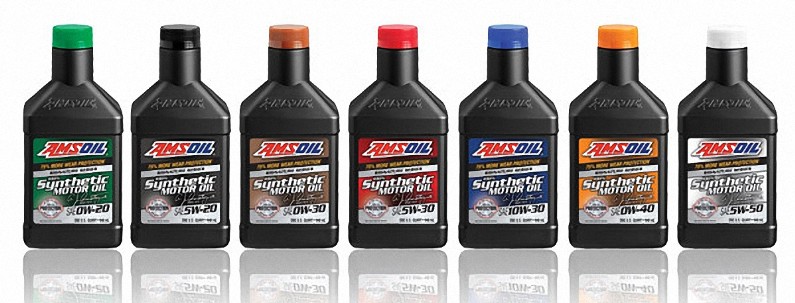In hot climates, choose thicker motor oil to ensure proper engine protection and lubrication. Thicker oil performs better in warmer temperatures by maintaining viscosity.
When selecting engine oil for hot climates like Austin, Texas, it’s crucial to consider the temperature-viscosity relationship. The viscosity of oil changes with temperature, affecting its flow and lubricating properties. Opting for a higher viscosity oil can provide better protection for your engine in extreme heat conditions.
By understanding the impact of temperature on oil viscosity, you can make an informed choice to keep your engine running smoothly in hot weather.

Credit: www.selectsynthetics.com
Introduction To Oil Viscosity In Hot Climates
Understanding oil viscosity is crucial for car owners, especially those living in hot climates. Choosing the right viscosity motor oil can prevent engine wear and tear, ensure optimal engine performance, and increase fuel efficiency. In hot weather, it’s recommended to use thicker motor oil to maintain engine protection and lubrication.
Understanding oil viscosity is crucial for maintaining your engine’s performance, especially in hot climates. The viscosity of oil refers to its thickness and ability to flow. In hot weather, the right viscosity is essential for proper lubrication and protection.
Why Viscosity Matters For Your Engine
- Viscosity determines oil’s ability to lubricate engine parts
- Correct viscosity ensures optimal engine performance
- Wrong viscosity can lead to engine wear and damage
Impact Of High Temperatures On Oil Performance
- High temperatures cause oil to thin out
- Thinner oil may not provide sufficient engine protection
- Choosing the right viscosity oil for hot climates is essential
Selecting The Right Oil Viscosity For Heat
When it comes to selecting the right oil viscosity for heat, understanding oil viscosity ratings and guidelines for viscosity selection in warm weather is crucial.
Understanding Oil Viscosity Ratings
Oil viscosity ratings are denoted by a two-number grading system, such as 10W-30. The number before the “W” (which stands for winter) indicates the oil’s flow at cold temperatures, while the second number represents its viscosity at operating temperatures. Lower viscosity oils flow more easily at cold temperatures, while higher viscosity oils maintain their thickness at high temperatures.
Guidelines For Viscosity Selection In Warm Weather
When selecting oil viscosity for hot climates, it’s essential to consider the manufacturer’s recommendations for your specific vehicle. In general, thicker oils, such as 10W-40 or 20W-50, are better suited for hot weather conditions as they provide improved engine protection. However, it’s crucial to adhere to the manufacturer’s guidelines to ensure optimal performance and longevity of your vehicle’s engine.
Thicker Vs. Thinner Oils In Heat
In hot climates, choosing the right engine oil viscosity is crucial for optimal engine performance and longevity. Understanding the differences between thicker and thinner oils can help you make an informed decision.
Benefits Of Thicker Oils In Hot Climates
- Enhanced Protection: Thick oils provide a robust film of lubrication, offering better protection against wear and tear in high temperatures.
- Improved Stability: Thicker oils maintain viscosity better in hot conditions, ensuring consistent lubrication throughout the engine.
- Reduced Oil Consumption: Higher viscosity oils are less prone to evaporation, reducing the need for frequent top-ups in hot weather.
Risks Of Using Too Thin Oils In High Temperatures
- Reduced Protection: Thin oils can break down quickly in heat, leading to inadequate lubrication and potential engine damage.
- Increased Friction: Low viscosity oils may not provide sufficient cushioning between moving parts, causing increased friction and wear.
- Higher Oil Consumption: Thin oils are more likely to burn off or evaporate in hot climates, requiring more frequent refills.
Technical Insights: How Oil Protects Engines
Role Of Oil In Engine Protection
Engine oil plays a crucial role in protecting the internal components of an engine by providing lubrication, reducing friction, and preventing wear and corrosion. It also helps to cool the engine by dissipating heat and carrying away contaminants. The right viscosity of oil is essential for ensuring proper engine protection, especially in hot climates.
How Heat Affects Oil’s Protective Properties
High temperatures can significantly impact the protective properties of engine oil. When exposed to heat, oil can thin out, reducing its ability to create a strong lubricating film between moving parts. This can lead to increased friction, wear, and potential damage to the engine. Additionally, heat can cause oil to oxidize and form sludge, compromising its ability to flow smoothly and protect the engine.
Case Studies: Oil Performance In Tropical Climates
Explore real-world case studies on the performance of engine oil viscosity in tropical climates. Understand the impact of high temperatures on oil viscosity and learn how to choose the right oil for hot climates.
Real-world Examples Of Oil Performance In Heat
When it comes to understanding how engine oils perform in hot climates, real-world case studies provide valuable insights. In one case, a tropical climate with consistently high temperatures tested the effectiveness of various engine oils over an extended period. The results revealed the impact of heat on oil viscosity and its ability to maintain optimal lubrication under such extreme conditions.
Lessons From Tropical Climate Conditions
Lessons learned from studying oil performance in tropical climates are crucial for selecting the right viscosity motor oil. High temperatures can cause oil to thin out, reducing its ability to protect the engine. The case studies demonstrated the importance of choosing oils that maintain their viscosity and provide reliable lubrication, even in the face of relentless heat. These lessons are invaluable for vehicle owners and maintenance professionals operating in hot climates.

Credit: www.nqifs.com.au
Expert Recommendations For Hot Weather Motor Oil
When it comes to selecting the right motor oil for hot climates, it is crucial to heed advice from automotive professionals. These experts offer valuable insights into the preferred oil types that can withstand extreme temperatures and keep your engine running smoothly.
Advice From Automotive Professionals
Automotive professionals recommend using motor oils with higher viscosity for hot weather conditions. Thicker oils provide better protection for your engine by maintaining their viscosity even in high temperatures. This helps to prevent engine wear and ensures optimal performance.
Preferred Oil Types For Extreme Temperatures
- Full synthetic oils: Synthetic oils are highly recommended for hot climates due to their superior heat resistance and thermal stability. They flow smoothly at low temperatures and maintain their viscosity at high temperatures.
- Viscosity index: Look for motor oils with a high viscosity index, as they are less prone to thinning out in hot weather. These oils provide better lubrication and protection for your engine components.
- Multi-grade oils: Multi-grade oils, such as 10W-30 or 5W-40, are ideal for hot climates as they offer a balance between cold start protection and high-temperature performance. These oils adapt to temperature changes, ensuring optimal engine protection.
By following these expert recommendations and choosing the right motor oil for hot weather conditions, you can help extend the life of your engine and maintain its efficiency even in extreme temperatures.
Maintenance Tips For Vehicles In Hot Regions
When it comes to maintaining vehicles in hot regions, it’s crucial to adjust the maintenance routine to ensure optimal performance and longevity. The intense heat can put extra strain on the engine and other components, making regular checks and adjustments essential for smooth operation. Here are some maintenance tips to keep your vehicle running smoothly in hot climates.
Regular Checks And Balances
Regular maintenance checks are crucial in hot climates to ensure that the vehicle is operating at its best. This includes checking the engine oil level, coolant level, and overall engine condition. Additionally, inspecting the air conditioning system, tire pressure, and battery health is essential to prevent any unexpected breakdowns in the scorching heat.
Adjusting Your Maintenance Routine For Summer
Summer calls for adjustments in the maintenance routine to combat the effects of extreme heat. This includes more frequent oil changes using the right viscosity oil suitable for hot climates. It’s important to use thicker motor oil to ensure proper lubrication and protection, as oil tends to thin out in high temperatures. Furthermore, checking the radiator and cooling system for any leaks or malfunctions is crucial to prevent overheating during the hot summer months.

Credit: motorstate.com
Future Trends In Engine Lubrication For Hot Climates
Innovations in oil technology are driving the future of engine lubrication for hot climates. With the rise in global temperatures, the demand for high-performance oils that can withstand extreme heat is increasing.
Innovations In Oil Technology
- Advanced Additives: Formulations with innovative additives enhance oil stability in high temperatures.
- Nanotechnology: Nano-sized particles improve lubrication efficiency and reduce friction.
- Synthetic Blends: Blending synthetic oils with conventional ones enhances heat resistance.
Predicting Changes In Oil Formulation
- Research & Development: Continuous R&D efforts focus on creating oils tailored for hot climate performance.
- Environmental Considerations: Formulations aim to reduce emissions and environmental impact.
- Compatibility: Future oils will be compatible with modern engine technologies and materials.
Frequently Asked Questions
What Oil Viscosity Is Best For Hot Weather?
Choose a thicker oil for hot weather to keep your engine well-protected. Thicker oil performs better in warmer temperatures by maintaining proper lubrication.
Should I Use Thicker Oil In Hotter Climates?
For hotter climates, use thicker oil to protect your engine in warm temperatures. Thicker oil maintains proper lubrication when it thins out as it heats up.
Is 5w30 Or 5w40 Better For Hot Weather?
In hot weather, 5W40 is better than 5W30 as it provides better engine protection.
Can I Use 10w40 Instead Of 5w30 In Summer?
It is not recommended to use 10W40 instead of 5W30 in summer as it can lead to engine damage. Thicker oil may provide better protection, but it can also reduce fuel efficiency and increase wear on engine components. Stick to the manufacturer’s recommended viscosity for optimal engine performance in hot weather.
Conclusion
Choosing the right engine oil viscosity for hot climates is crucial for optimal engine performance. Understanding how viscosity changes with temperature and selecting the appropriate oil weight can help protect your engine in high-temperature conditions. By following the viscosity guidelines, you can ensure that your engine remains well-lubricated and protected from heat-related damage.
